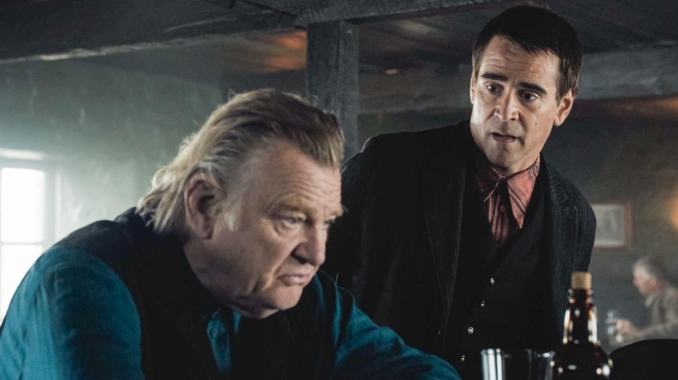The Banshees of Inisherin Is a Haunting, Masterful Portrait of Mundane Despair

Whether we wear it on our sleeves or bury it somewhere down in the darkest part of ourselves, we all carry the fear that someday someone we trust and love will simply decide to abandon us. It lives somewhere in each of us in the same vicinity as the fear that, someday, inexplicable and motive-less violence will descend on us and our loved ones—a little knot of dread waiting to unspool. But this fear is quieter, simpler and, therefore, less-often discussed in the wider cultural landscape. There are a lot of films about sudden violence, but you don’t see as many feature-length explorations of straightforward, person-to-person departures. With that in mind, it would be easy to look to Martin McDonagh’s phenomenal The Banshees of Inisherin as some kind of fable, a dark fairy tale from a faraway time and place meant to cast long, shadowy metaphors over our own lives. If you’re willing to look closely, you’ll definitely find all the material you need to make those metaphors happen in your mind, but at the film’s Fantastic Fest premiere, McDonagh himself called it “a simple break-up story,” an exploration of what might happen to two men if one simply decided to cut ties with the other.
So, is it a grand, fathoms-deep exploration of the bittersweet nature of human relationships, or “a simple break-up story” that’s just about one Irishman deciding he doesn’t want to see another Irishman anymore? In the end, it’s both, and that’s what makes The Banshees of Inisherin and its blackly hilarious portrait of everyday pain one of the best films of the year.
Through beautifully framed shots rich with the texture of rustic stone walls and the warped glass of old windows, McDonagh takes us back to Ireland a century ago, where civil war rages on the mainland and things progress at their usual slow pace on the island of Inisherin. It’s here, with artillery fire raging in the background, that Colm Doherty (Brendan Gleeson) decides he’s done hanging out with his old pub pal Pádraic Súilleabháin (Colin Farrell). For some on the island, it makes a certain degree of sense—the creative and contemplative Colm and the more simple-minded Pádraic always were a mismatched pair—but for Pádraic, it’s a baffling, literal overnight tectonic shift in his life. He hopes Colm’s sudden distance is part of a fight that he somehow forgot, or a poor choice of words after one too many pints, but according to Colm, it’s painfully, frighteningly simple: “I just don’t like you no more.”
Colm’s decision sends an unpredictable ripple effect through the island village, as Pádraic’s well-read sister Siobhán (an incandescent Kerry Condon), local miscreant Dominic (Barry Keoghan) and even the local parish priest all have something to say about it. But even as McDonagh devotes considerable emotional energy and depth to these supporting characters, his script—crackling with bright, musical dialogue—keeps an almost preternatural focus on Pádraic and Colm, and the one-sided mystery of their falling out.
Both men grow consumed by the fallout of Colm’s decision: Pádraic descends deeper into a desperate need to understand why his friend has abandoned him; Colm descends into a frustrated spiral of his own as he fights to prove that he’s not just in a mood. He really means it, and he’s willing to do anything—even cut off his own fingers with a pair of shears—to prove that his quest for some kind of late-in-life peace means leaving Pádraic behind for good.
-

-

-

-

-

-

-

-

-

-

-

-

-

-

-

-

-

-

-

-

-

-

-

-

-

-

-

-

-

-

-

-

-

-

-

-

-

-

-

-








































